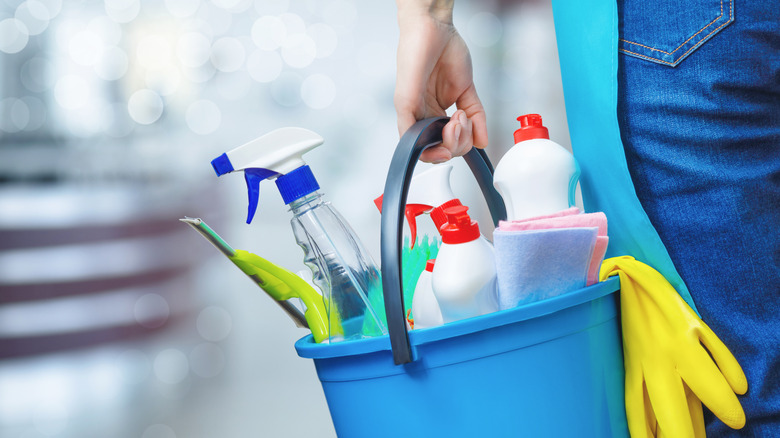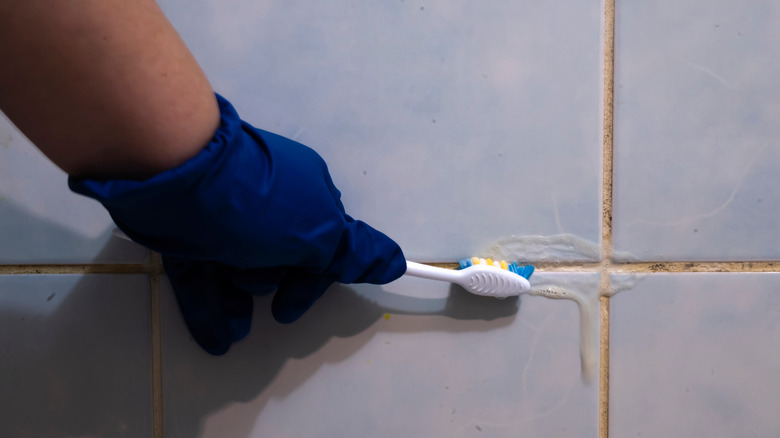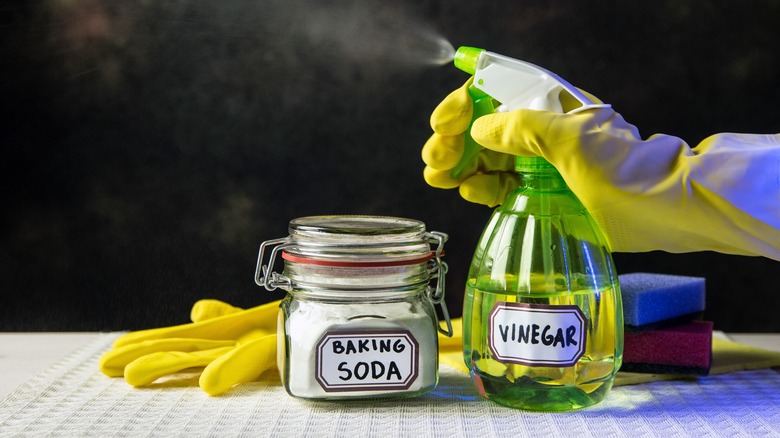DIY Shower Cleaning Items That You Should Think Twice About
While you might have read and heard about them, baking soda, bleach, and oils aren't ideal bathroom cleaning solutions for the shower. Bleach, as an example, presents a challenge with its strong odor even when you dilute it with water. In a small, unventilated place, like your shower, the fumes from bleach can make you feel nauseous, considering how hazardous they are.
In addition to its strong odor, the chlorine in bleach has the capability of damaging surfaces and bonding materials, like grout and silicone over time. And contrary to popular belief, bleach is not the answer to a mold problem. In this case, bleach acts as a stain remover but doesn't kill the organism.
Baking soda is another commonly used ingredient in homemade cleaners. With its ability to absorb odors and battle stains (when used with water as a paste) without emitting fumes, we can see why this substance seems so useful. However, its abrasive qualities prove to be too harsh on some surfaces like glass, metal, and plastic.
Also, you should steer clear of oils, such as tea tree oil and other essential oils, especially when cleaning the shower floor. While these ingredients clear away stains and make everything shiny, they also leave behind a slippery film that's quite hazardous.
Use the DIY cleaners on a different surface
At the same time, you don't necessarily have to avoid all these items entirely. Rather, you can use them on a different surface in the shower. For example, baking soda, when mixed with water to create a paste, works well on tile grout. You can take a small brush to apply the paste onto the grout and gently scrub away any dirt and discoloration.
Next, you'll need to thoroughly rinse the paste off the surface. In this case, baking soda won't damage the grout like it would other surfaces. In addition to grout, you can sprinkle a small amount of baking soda on the shower floor and gently scrub it with a sponge or cloth. Make sure to rinse the powder off completely or else you get a gritty texture on the floor.
With that tip in mind, you can still use an oil-based DIY cleaner, but the key is to apply it to the shower walls and not use it on the floor. This mixture consists of orange essential oil, borax, and lemon juice, all combined in a small container and applied with a sponge or cloth. This concoction, with its acidic ingredients, disinfects and adds a fresh, citrus-like scent.
Alternatives for cleaning your shower
Likewise, you can find substitutes out there that'll still get the job done. For instance, straight, white vinegar makes a great replacement for bleach when you're dealing with mold. All you need to do is spray the affected area and wait before wiping or rinsing. Given that vinegar has a strong odor, you might want to turn on a fan or open a window to allow for adequate ventilation. After about an hour or when the surface is dry, use hot water and a cloth to wipe off the vinegar and stains. Make sure to allow your shower to dry completely to keep the mold from returning.
In a few situations where the mold stains prove to be hard to remove, you may use a combination of soap, baking soda, and hot water to gently scrub the stains as long as the surface doesn't get scratched from the baking soda. Then you may follow up with a spritz of bleach diluted in water. Just make sure to rinse completely with hot water and allow the shower to dry.
When it comes to shower doors and metal fixtures, you can either use white vinegar or rubbing alcohol diluted with water. Both work well with disinfecting and enhancing the shine and clarity of doors and fixtures, making them excellent alternatives to bleach or ammonia cleaners.


